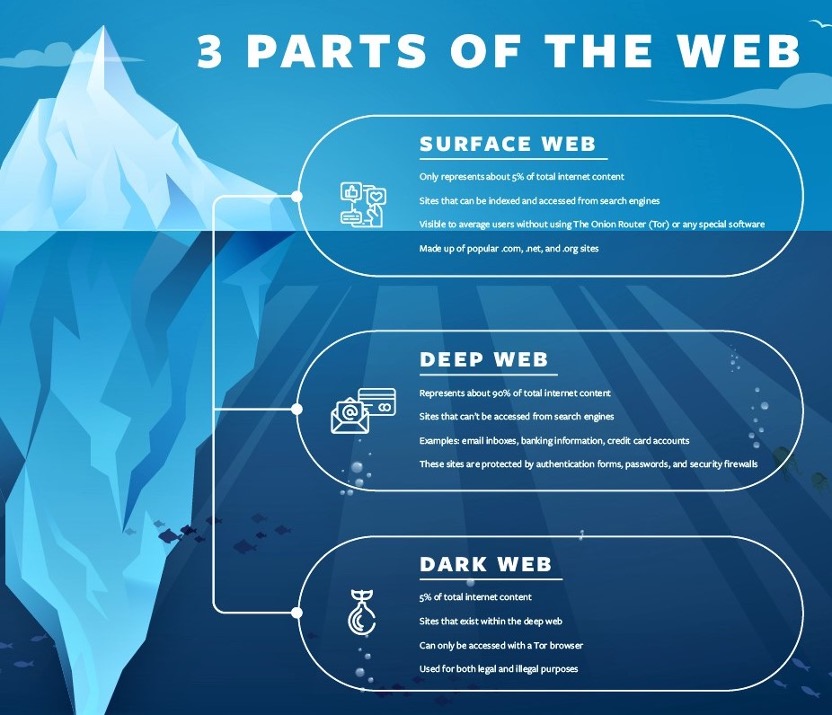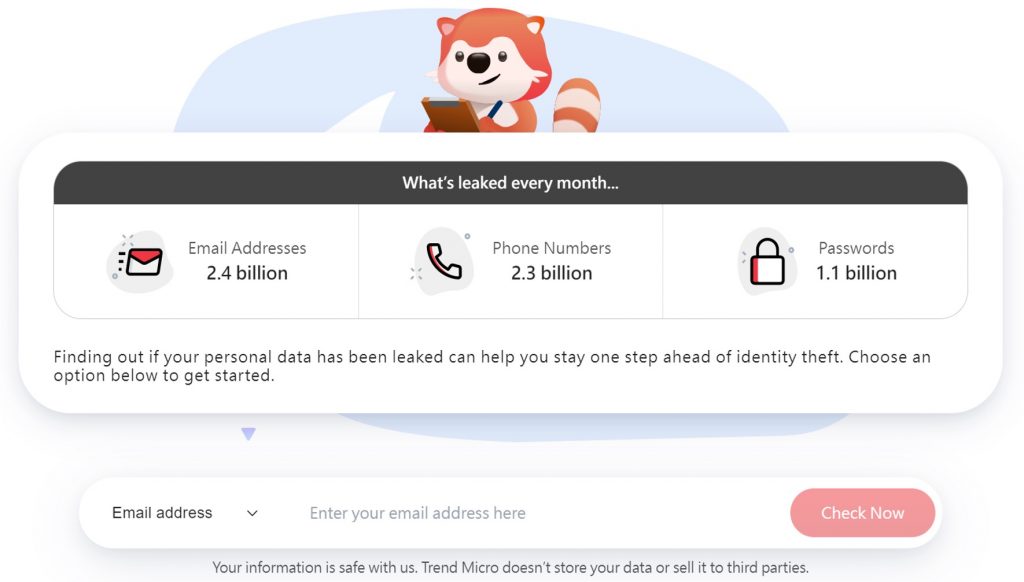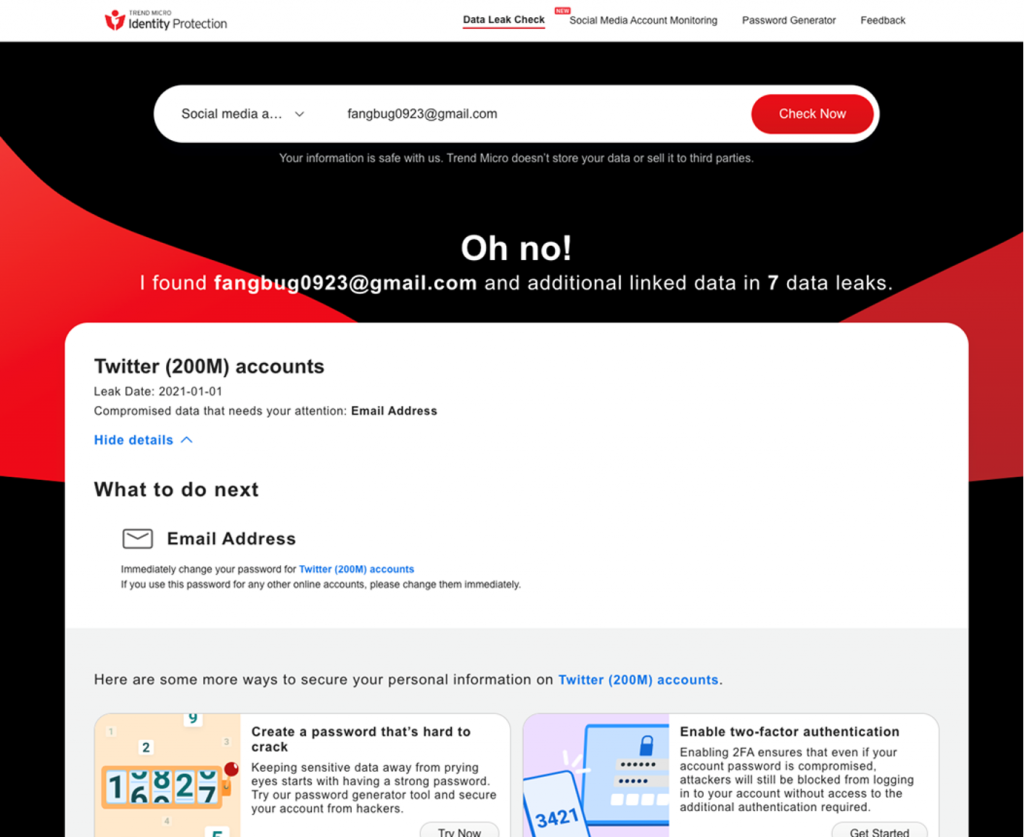The “dark web” is the unseen part of the internet, and makes up approximately 5% of all internet content. It is part of a much larger area known as the deep web, which conversely makes up a huge 90% of the internet. The reputation of the dark web precedes it in everyday conversation — being known primarily for the procurement of identity credentials, drugs, sex, firearms, and other shady transactions. Famously, it was where Ross Ulbricht’s Silk Road black market operated from. But what is the dark web and how does it work?
What Is the Dark Web and How Does It Work?
The dark web is the hidden part of the internet that can only be accessed via specific browsers. It is a series of websites that require specific authorization to enter. Dark websites also allow users unparalleled anonymity due to encryption software such as the Tor (short for The Onion Router) browser.
Unlike the surface web, the dark web does not use information available on search engines like Google or Bing; instead, it utilizes content from individual sources: forums, email, social media, and company databases. Similarly, unlike the surface web, where all website content is indexed, everything within the dark web is decentralized — and to access its content, users need to type in complex links composed of numbers and letters. For example, the commerce website known as “Dream Market” has the following address: “eajwlvm3z2lcca76.onion”.
Who Created the Dark Web?
The dark web has its origins way back in 1999, with the research project of University of Edinburgh student, Ian Clark. Clark’s intent was to create an anonymous peer-to-peer file-sharing program, named Freenet. On this free speech platform, users would be able to discuss and share information without the controls of government censorship. Freenet was released to the public in 2000, however, it wasn’t long before it was eclipsed by Tor, released in 2003/4. To this day, Tor is still the favored route of access to the dark web.

Dark Web vs Deep Web: What’s the Difference?
The dark web and the deep web are two terms that are often used interchangeably — but incorrectly. The deep web, which is the overwhelming majority of the internet, is simply content that is not indexed by standard search engines: it is that which lies below the surface. The dark web exists within the deep web, making up a tiny minority of content, respectively. We use the deep web every day in fact — examples include:
- Social media pages
- Intranets
- Online banking
- Databases
- Paywall content
- Forums
- Medical records
Is the Dark Web Illegal?
The dark web is not illegal, and accessing it is completely lawful. Although, this depends on the country you’re in, as totalitarian regimes are obviously against platforms that provide anonymity to users. It is used by whistleblowers, the US military, journalists, and even those simply seeking rare items — out-of-print books, for example. It is also a great venue for free online libraries and countless discussion forums.
Nonetheless, the dark web does have a well-earned reputation for illegal content and activity taking place within it. For example, it is the go-to place for cybercriminals to buy and sell stolen credentials, such as credit card numbers, email addresses, passwords, and Social Security numbers.
Aside from identity theft, it is also a venue for many other criminal ventures, including:
- The buying and selling of illegal drugs,
- Malware trading,
- Cybercrime “exploit kits”,
- Cybercriminal training,
- “Zero-day” software vulnerabilities,
- Botnet and Distributed denial of service (DDoS) services,
- Weapons dealing,
- Counterfeit goods,
- Prostitution,
- Human trafficking,
- Money laundering,
- And illegal pornography.
In summary, the dark web is not illegal — but most activities that people use it for are illegal.
Am I at Risk from the Dark Web?
We are all to some extent at risk from the dangers of the dark web — regardless of whether we use it or not. Aside from the abundance of viruses, trojans, and ransomware due to lax security provisions, the dark web is the go-to marketplace for stolen credentials and PII. Last year, the FBI estimated that losses from cybercrime reached almost $7 billion — much of this takes place on it. Your data is of great value — in 2023, some example prices include:
- Credit card details (balance up to 5,000) — $110
- ING bank account details — $4,255
- CashApp account — $860
- Hacked Gmail account — $60
- Hacked Instagram account — $25
- Airbnb account — $300
- New York driver’s license — $60
- Fake US Green Card — $450
- Average state ID details — $200
- Uber driver account — $30
Protecting Your Identity and Personal Info
Compromised personal data can have serious consequences, including identity theft, financial fraud, and job losses. The best thing you can do is a) have reliable cybersecurity protection, and b) ensure you will find out ASAP in the event of being affected. We would encourage readers to head over to our new FREE ID Protection platform, which has been designed to meet these challenges.

With ID Protection, you can:
- Check to see if your data (email, number, password, social media) has been exposed in a leak,
- Secure your social media accounts with our Social Media Account Monitoring tool, with which you’ll receive a personal report,
- Receive the strongest tough-to-hack password suggestions from our advanced AI.

All this for free — why not give it a go today? As always, we hope this article has been an interesting and/or useful read. If so, please do SHARE it with family and friends to help keep the online community secure and informed — and consider leaving a like or comment below. Here’s to a secure 2023!
